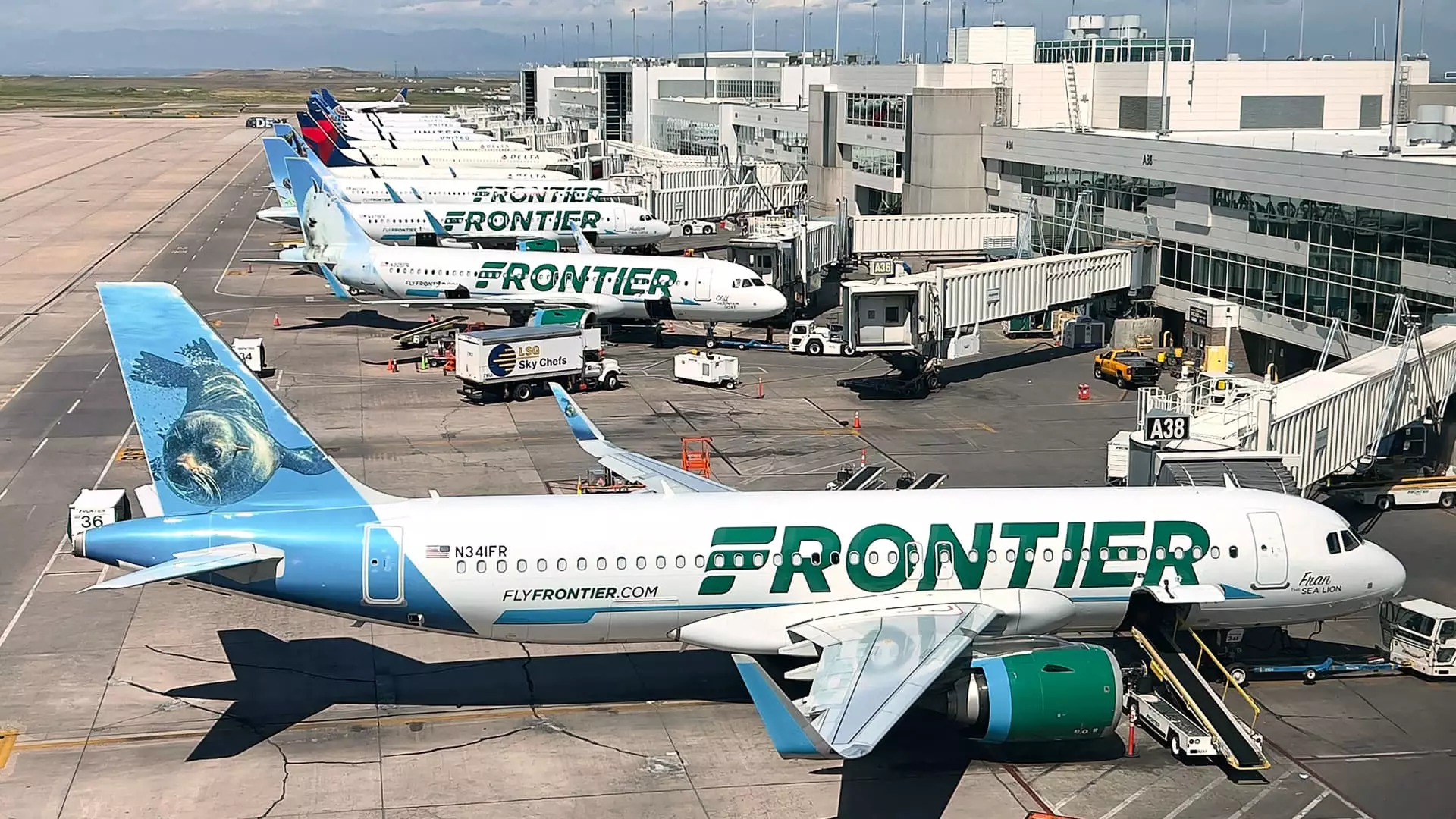In a significant shift aimed at capturing a broader customer base, Frontier Airlines has announced its plans to introduce first-class seating across its fleet. This strategic diversification comes as the airline industry intensifies its competition for passengers willing to pay more for enhanced comfort and personalized space during their flights. Frontier, known for its budget-friendly approach, is transforming certain aspects of its service model to appeal to those traveling on longer routes who might prioritize comfort.
Beginning September, the airline will implement a new seating arrangement by removing the first two rows of its economy section. This alteration will pave the way for four first-class seats configured in a two-by-two arrangement, catering to an elite segment of travelers. The introduction of these premium seats is complemented by the airline’s broader overhaul of its loyalty program, which is set to offer complimentary upgrades and free companion tickets for its higher-tier members. This move signals a strategic pivot toward enhancing customer loyalty and satisfaction as Frontier seeks to distinguish itself from other low-cost carriers.
CEO Barry Biffle has projected that these initiatives could yield an impressive $250 million in revenue by 2026 and potentially exceed $500 million by 2028. This anticipated financial turnaround suggests a keen acknowledgment of gaps in Frontier’s revenue streams, particularly concerning the absence of first-class seating and insufficient rewards for loyal customers. By capitalizing on these opportunities, Frontier aims to fortify its market position amidst growing competition from established airlines known for their upscale offerings.
The current airline landscape is marked by a race to attract higher-paying travelers, with many airlines reconfiguring their seating to include more first-class options. Prominent carriers like Delta and United have set the standard by enhancing their services and offering larger seats, which often command a premium price. Frontier’s foray into first-class seating comes as a response to this trend, but it will face formidable competition from other airlines that provide additional amenities, such as gourmet meal services.
In conjunction with the addition of first-class seats, Frontier plans to uphold its strategy of offering rows with blocked middle seats—a concept that has gained popularity since its introduction. This offering, along with Southwest Airlines’ recent move to add extra-legroom seats and implement seat assignments for the first time in its history, underscores the shifting norms within the budget airline sector. In a unique twist, Spirit Airlines has maintained a “Big Front Seat” that mimics the experience of a domestic first-class seat, further emphasizing the evolving expectations of air travelers.
Biffle’s assertion that these reforms will be a “game changer” reflects a committed vision to redefine the customer experience at Frontier Airlines. As it navigates this competitive landscape, Frontier not only aims to elevate its standing among budget carriers but also to enhance its appeal to a demographic that prioritizes well-rounded service at competitive prices. This evolution could potentially reshape the dynamics of budget travel, positioning Frontier as a formidable contender in the marketplace.


Leave a Reply